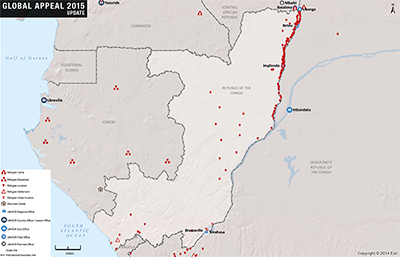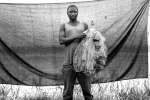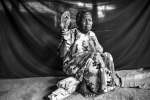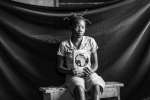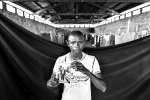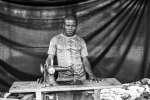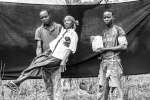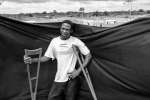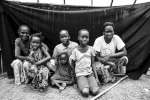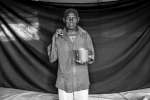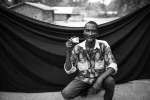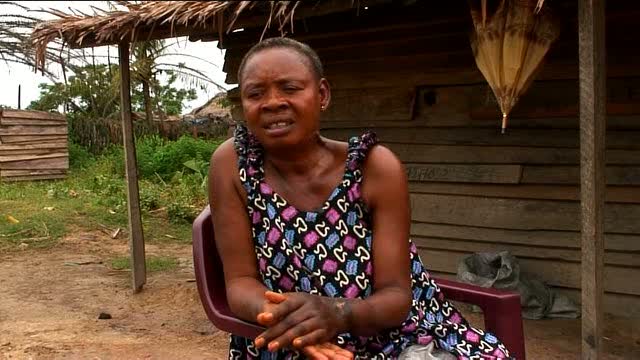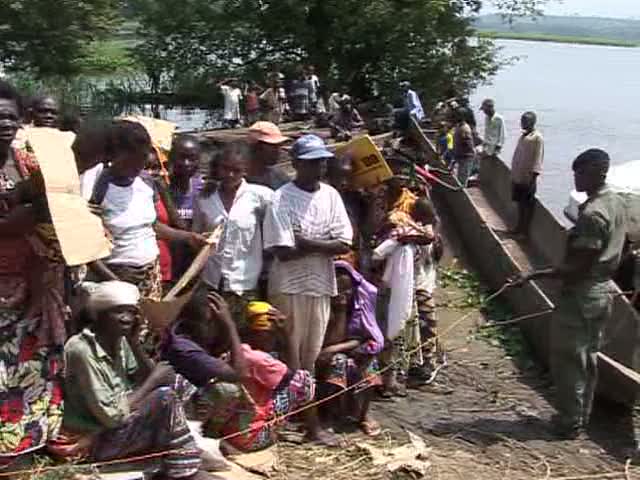Home > Where We Work > Africa > Central Africa and the Great Lakes > Republic of the Congo
2015 UNHCR country operations profile - Republic of the Congo
| Overview |
Working environment
-
UNHCR's operations in the Congo focus on protecting and providing life-saving assistance for refugees who fled the ongoing crisis in the Central African Republic (CAR).
-
The Office is committed to finding durable solutions for refugees from the Democratic Republic of the Congo (DRC), who are living in the Likouala region, as well as for Angolan and Rwandan refugees. UNHCR's efforts to facilitate access to residency cards face serious challenges. The Office will work with the Government of the Congo towards a local integration strategy.
-
The protection environment has deteriorated with cases of refoulement reported, as well as police operations against foreigners. The implementation of laws forbidding non-nationals from accessing several income-generating activities has increased refugees' dependency on UNHCR.
-
The local community in the Likouala region has welcomed Central African refugees and the authorities have identified land to develop a new site. The Government has also allowed refugees from all nationalities to attend national schools.
People of concern
In 2015, UNHCR plans to support the following populations in the Congo: refugees from the DRC who fled inter-communal violence in the Equateur Province and sought refuge in north-eastern Congo in 2009-2010; CAR refugees who fled violence and continue to arrive, mostly to the Betou area; Rwandan refugees who fled in the aftermath of the 1994 genocide and found refuge in the DRC, before fleeing to the Congo during the Congolese war of 1996; and asylum-seekers, mainly coming from the DRC, most of whom live in Brazzaville.
| UNHCR 2015 planning figures for Congo | |||||
|---|---|---|---|---|---|
| Type of population | Origin | January 2015 | December 2015 | ||
| Total in country | Of whom assisted by UNHCR |
Total in country | Of whom assisted by UNHCR |
||
| Total | 49,430 | 49,430 | 49,230 | 49,230 | |
| Refugees | Central African Rep. | 20,000 | 20,000 | 20,000 | 20,000 |
| Dem. Rep. of the Congo | 17,000 | 17,000 | 17,650 | 17,650 | |
| Rwanda | 8,500 | 8,500 | 8,100 | 8,100 | |
| Various | 560 | 560 | 460 | 460 | |
| Asylum-seekers | Chad | 120 | 120 | 100 | 100 |
| Dem. Rep. of the Congo | 1,620 | 1,620 | 1,330 | 1,330 | |
| Rwanda | 200 | 200 | 170 | 170 | |
| Various | 310 | 310 | 250 | 250 | |
| Returnee arrivals during year (ex-refugees) | Congo | 30 | 30 | 30 | 30 |
| Others of concern | Angola | 550 | 550 | 550 | 550 |
| Dem. Rep. of the Congo | 180 | 180 | 200 | 200 | |
| Rwanda | 250 | 250 | 260 | 260 | |
| Various | 120 | 120 | 130 | 130 | |
| Response |
Needs and strategies
The protection strategy in 2015 will continue to focus on the search for durable solutions, particularly in setting out a strategy for the local integration of DRC refugees living in Likouala, and for Rwandan refugees who did not repatriate. Refugees will need assistance to cover the costs of residency cards for their legal integration.
The processing of more than 4,000 exemption cases for Rwandan refugees following the June 2013 declaration of the cessation clause will also be a priority. UNHCR's counterpart, the Comité National d'Assistance aux Réfugiés (CNAR), will need support to build its capacity to do this.
Efforts will focus on ensuring that: CAR refugees are registered; they receive documentation; refugee exposure to sexual and gender-based violence (SGBV) is reduced; refugees can access primary and secondary health care; peaceful cohabitation is promoted; and educational and vocational activities are implemented.
In order to reduce refugees' dependency on food aid and improve their food security, UNHCR will support livelihood and income-generating activities for them.
| Implementation |
Coordination
In 2015, UNHCR will continue to work with the CNAR, which is the governmental body for all activities relating to refugees in the Congo. Coordination with other UN agencies, particularly those who intervene in various refugee programmes, will be strengthened to ensure that the gaps are covered. Monthly coordination meetings with partners will continue to ensure that objectives are achieved. In the field, multifunctional teams will continue to monitor and evaluate activities to rationalize resources and take necessary corrective measures to maximize results.
| 2015 UNHCR partners in Congo |
|---|
| Implementing partners |
| NGOs: African Initiatives for Relief and Development, Agence d'Assistance aux Rapatriés et aux Réfugiés au Congo, Commission d'Entraide pour les Migrants et les Réfugiés, Médecins d'Afrique |
| Operational partners |
| Government agencies: Comité National d'Assistance aux Réfugiés |
| Others: ICRC, IOM, UNFPA, UNICEF, WFP, WHO |
| Financial information |
The facilitated-repatriation programme launched in May 2012 was concluded in June 2014. Central African refugees began arriving in the Congo in March 2013 and have continued to do so. The budget reflected this trend showing an increase of USD 4.5 million from 2012 to a 2014 revised budget of USD 35.1 million. UNHCR's operational budget for 2015 is set at USD 35.3 million.
Funding shortages will affect life-saving activities as well as the Office's ability to support education, which is particularly important given the young and urban population demographics.
Source: UNHCR Global Appeal 2015 Update
UNHCR contact information
| The UNHCR Representation in the Republic of the Congo | |||||||||||||||
|---|---|---|---|---|---|---|---|---|---|---|---|---|---|---|---|
| Style of Address | Le Représentant du H.C.R. en République du Congo | ||||||||||||||
| Street Address | 6, Rue 18 Mars 1977, Quartier Cathedrale, Brazzaville, Congo | ||||||||||||||
| Mailing Address | B.P. 1093, Brazzaville, Congo | ||||||||||||||
| Telephone | 41 22 739 7278 | ||||||||||||||
| Facsimile | 41 22 739 7279 | ||||||||||||||
| cobbr@unhcr.org | |||||||||||||||
| Time Zone | GMT + 1 | ||||||||||||||
| Working Hours |
|
||||||||||||||
| Public Holidays | 01 January 2015, NEW YEAR 03 April 2015, GOOD FRIDAY 06 April 2015, EASTER MONDAY 01 May 2015, LABOUR'S DAY 18 July 2015, AID AL FITR 15 August 2015, FETE NATIONAL ASSUMPTION 23 September 2015, AID AL ADHA 01 November 2015, TOUSSAINT 28 November 2015, REPUBLIC DAY 25 December 2015, CHRISTMAS |
||||||||||||||
| The UNHCR Field Office in Betou | |||||||||||||||
|---|---|---|---|---|---|---|---|---|---|---|---|---|---|---|---|
| Style of Address | The UNHCR Head of Field Office in Betou | ||||||||||||||
| Street Address | 6, Rue du 18 mars 1977, Quartier Mission Catholique Sacre Cœur, Brazzaville, Congo | ||||||||||||||
| Mailing Address | Case Postale 1093, Brazzaville, Congo | ||||||||||||||
| Telephone | 242 05 737 3701 | ||||||||||||||
| Facsimile | 4122 739 7279 | ||||||||||||||
| cobbe@unhcr.org | |||||||||||||||
| Time Zone | GMT + 1 | ||||||||||||||
| Working Hours |
|
||||||||||||||
| Public Holidays | 01 January 2015, NEW YEAR 03 April 2015, GOOD FRIDAY 06 April 2015, EASTER MONDAY 01 May 2015, LABOUR'S DAY 18 July 2015, AID AL FITR 15 August 2015, FETE NATIONAL ASSUMPTION 23 September 2015, AID AL ADHA 01 November 2015, TOUSSAINT 28 November 2015, REPUBLIC DAY 25 December 2015, CHRISTMAS |
||||||||||||||
| The UNHCR Field Office in Impfondo | |||||||||||||||
|---|---|---|---|---|---|---|---|---|---|---|---|---|---|---|---|
| Style of Address | The UNHCR Head of Field Office in Impfondo | ||||||||||||||
| Street Address | 336, Avenue Denis Sassou Nguesso, Impfondo, Congo | ||||||||||||||
| Mailing Address | Case postale 1093, 6, Rue du 18 mars 1977, Quartier Mission Catholique Sacre Coeur, Brazzaville, Congo | ||||||||||||||
| Telephone | 242 549 7301 | ||||||||||||||
| Facsimile | 4122 739 7279 | ||||||||||||||
| cobim@unhcr.org | |||||||||||||||
| Time Zone | GMT + 1 | ||||||||||||||
| Working Hours |
|
||||||||||||||
| Public Holidays | 01 January 2015, NEW YEAR 03 April 2015, GOOD FRIDAY 06 April 2015, EASTER MONDAY 01 May 2015, LABOUR'S DAY 18 July 2015, AID AL FITR 15 August 2015, FETE NATIONAL ASSUMPTION 23 September 2015, AID AL ADHA 01 November 2015, TOUSSAINT 28 November 2015, REPUBLIC DAY 25 December 2015, CHRISTMAS |
||||||||||||||

